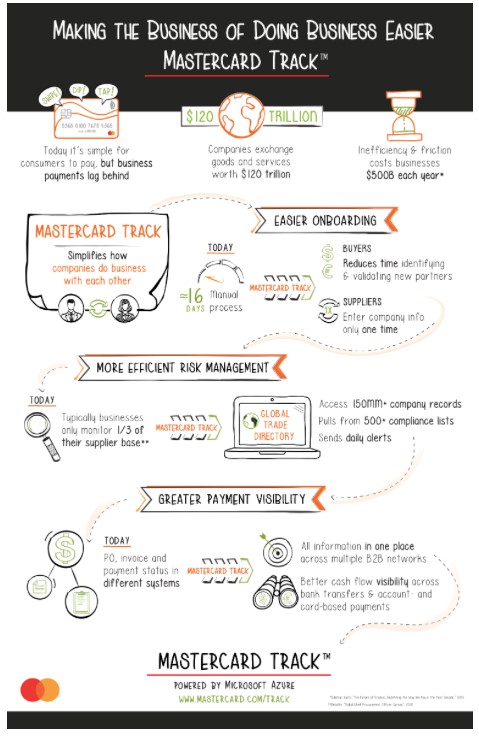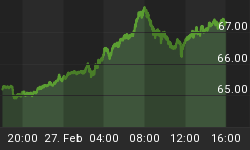Mastercard is hedging its bets that we’ve only seen the beginning of the global trade, and it also thinks the entire procure-to-pay process for companies around the world is pile of inefficient paperwork.
That’s why it’s just launched a global trade platform that it hopes will reduce the mountain of paper to a pile of irrelevant ash.
This week, the credit card giant rolled out “Mastercard Track”, a global trade platform powered by Microsoft Azure that will connect buyers and suppliers with banks and networks.
It’s “designed to streamline and automate the procure-to-pay process”.
"Mastercard Track is a tool that will help reduce frictions in the global trading system and promote increased exports - especially by small and medium-sized businesses,” Michael Froman, Mastercard’s vice chairman and president of strategic growth, said in a press release.
The first step is a partnership with nine B2B networks and procure-to-pay providers whose customers “will be able to maintain, retrieve and exchange key information relation to themselves and their trading partners through the Track Trade Directory, a secure, permissioned repository of over 150 million company registrations worldwide,” reads the Finextra press release. That starts in early 2019.
From that starting point, Track will help connect all types of payments on the platform, as well as connecting purchase order and invoice information. It will also make it possible for B2B networks, banks, insurance companies and tech providers “to extend value-added services to business customers, such as enhanced data analytics and trade finance” Related: Poll: 80 percent Of Consumers Bullish On Bitcoin
It will look something like this:

(Click to enlarge)
But that’s the sales pitch, and some would argue that the timing is not ideal—in the middle of a fever-pitch tariff war that is threatening global trade across the board.
Mastercard doesn’t see anything inherently risky with this play. In fact, Froman seems to think it’s all the more relevant.
He says it’s a long-term decision, and "whatever's happening in the trade policy area, we need to do what we can to take friction out of the system".
Right now, that friction is costing a lot of money, unnecessarily, according to Mastercard. The company says that administration costs have already hit $500 billion, with $58 trillion of transactions still done on paper.
That’s half the value of all transactions done on paper in an era where paper has already become synonymous with the quill pen.
Related: UK Unicorn Eyes Flying Taxis By 2022
If you can’t read between the lines—this is about blockchain.
“We are forming connectivity across what already exists, leveraging existing connectivity between buyers and suppliers and networks today,” Froman said. “As they build blockchain, those will be embedded too. Track is blockchain ready, and as solutions that can offer value-added service come up, we will plug them into the platform.”
Mastercard already leads the blockchain app development space, right after China’s Alibaba and tech giant IBM.
Trade war or not, Mastercard’s newest gamble is probably a safe one. After all, it’s a long-term bet and a trade war won’t last forever; but blockchain is here to stay and will completely disrupt the future of payments, not to mention every single industry on the planet.
Blockchain seeks to remove the intermediaries and allow peer-to-peer payments. That’s a threat to Mastercard, its rivals and banks in general. Mastercard Track is perhaps one of the first steps in getting out in front of this threat. If the blockchain makes you irrelevant, then you have to become the blockchain.
By Michael Kern for Safehaven.com
More Top Reads From Safehaven.com
















